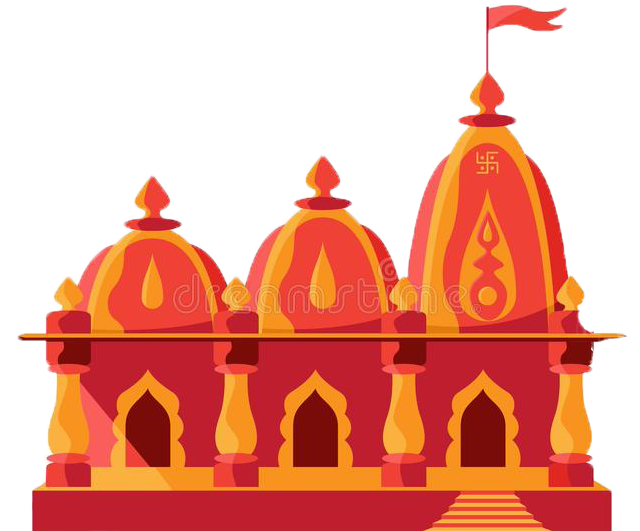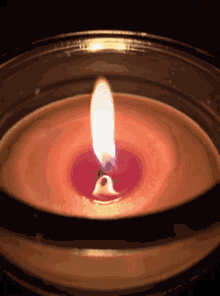Dress Code
Entry Restrictions
Parking Facilities
Security and Surveillance
Introduction and History in Brief
Gopachal rock-cut Jain monuments, also called Gopachal Parvat Jaina monuments, are a group of Jain carvings dated to between 7th and 15th century. They are located around the walls of the Gwalior Fort, Madhya Pradesh. They depict Tirthankaras in seated Padmasana posture as well as standing Kayotsarga posture, in the typical naked form of Jain iconography.
The number of Jain rock shrines at Gwalior, with numerous monumental statues, is unmatched anywhere else. James Burgess writes: “In the 15th century, during the reign of the Tomara Rajas, the Jains seem to have been seized with an uncontrollable impulse to convert the cliff that sustains the fort into a great shrine in honour of their religion, and in a few years excavated the most extensive series of Jaina caves known to exist anywhere.”
The Siddhachal Jain collosi cave temple is one of the Archaeological Survey of India’s Adarsh Smarak Monument along with other monuments in the Gwalior Fort.
The Gopachal rock-cut monuments are a part of nearly 100 Jain monuments found in and around the Gwalior city, but these are dated earlier than the Siddhachal Caves located about 2 kilometres (1.2 mi) north of these monuments. Both monuments were defaced and desecrated around 1527 when the Emperor Babur ordered their destruction., Quote: “In 1527, the Urvahi Jinas were mutilated by the Mughal emperor Babar, a fact he records in his memoirs”.[14]Centuries later, the Jain community restored many of the statues by adding back stucco heads on the top of the damaged idols.
The prolific Apabhramsha author Raidhu was responsible for consecrating many of the Jain rock carved images as attested by multiple inscriptions. These include the two colossal images of Shri Adinatha (57 feet) and Shri Chandraprabha.
Kurbuddin Aibak captured the fort from Parihars in 1196 AD and held it until his death in 1210. Altmash captured the fort in 1232 and built the fortifications at the Urvahi gate. The Tomars acquired control in 1394 and held it until 1517.
Mughal Emperor Babar conquered Gwalior in AD 1527. Babar ordered the destruction of the Jain statues, as he mentions in his memoirs. The heads of the statues at Urvahi gate and the Ek Patthat ki Bawadi were damaged. The Urvahi gate sculptures were repaired at some later time by the local Jains. The South-West Group and North West group sculptures survived because they were in inconspicuous and hard to reach places. and The Mughals kept control until Muhammad Shah. Scindias, the Maratha clan, took control in 1731. Shortly before that, Jain temples were constructed again in Gwalior city in 1704 AD, including the Jain Golden Temple, Gwalior.
Important News Related to Temple
Manyatas
There was a miracle when they tried to attack the idol of Lord Parshwanathji, the culprits ran away. A four colour book namely The Jain Sanctuaries of Fortes of Gwalior is the published by Kundkund Gyanpith, Indore which in detail elaborates about the ancientness and archaeological importants of the place. Annual Fair: Lord Mahaveerji Janma Kalyank-chaitra sudi-13 & Nirwana Kalyank- Poush badi -11 annual fair – kwar Badi – 4.
Architecture
The Gopachal rock-cut monuments depict the Tirthankaras in seated or standing meditating positions. They are not as colossal as some of those found in the Siddhachal Caves, but they are big. The Gopachal monuments include standing and seated Shri Rishabhanatha (Adinatha), Neminatha, Parshvanatha and Shri Mahavirasvami.
According to Jains, Tirthankara Parshvanath delivered his discourse (deshna) on this hill.
Temple Photos
Videos from YouTube
Presiding Deity
Bhagwan Rishabhanatha (Adinatha), Neminatha, Parshvanatha and Shri Mahavir Swami.❤️🙏
Be A True Devotee
Worship your Isht in your tradition .
But a passive worship is a total waste of your time and energy .
For True Worship ,a devotee MUST master the use of weapons the Deity bears.
There is no such weapon of Bhagwan Rishabhanand is mentioned but he used to carry Bibling Chimtas and Damru for the sake of prayers.
Remember, for a Sanatani, Shastra (Weapon) and Shaastra (Holy Book) go together🙏
Always carry the weapons of our respective deities like Gada,Sword and Trishula.
How to use? Where available? Legal issues?
Email us at <mandirdarshan.org@gmail.com>
Timing
Monday to Sunday – Open timing MORNING 5am–12pm & EVENING 2:00 PM–8PM.
The winter season is perfect to visit as it is so hot in summers in Madhya Pradesh which can cause Illness,difficulties.
No entry fee!
Aarti Timing
Basic Facilities
Activities
Festivals
Every year all major festival avam festivals are celebrated in the temple. it goes like this :-
Tirthankara Jayanti and Barsi
Mahavir jayanti
Padam Prabhu Jayanthi
Baba Mayaram Jayant and Barsi
Mahashivratri
Hanuman Jayanti
Ramnavami
Holi
Diwali
Dushera
Shattila Ekadashi
Om Shivaratri
🌚 Amavasya
🌻 Vasant Panchami
Om Rath Saptami
🐅 Magha Gupta Navratri
🌕 full moon
Om Phulera Dooj
Famous Temples Nearby
Chaturbhuj Temple
Shree Ram Janki Mandir
VANKHANDESHWAR TEMPLE
Kapileshwar Temple
Near by Shops & Markets
Nearby Dharamshalas
Hotels near Temple
Restaurants near Temple
Nearby Hospitals
SSIMS Hospital
Janak Hospital
Sahara Hospital etc..
Concerned Police Stations
Police Help Centre,Station Area,Gwalior
Racecourse Rd, LNUPE Campus, Kampoo, Gwalior, Madhya Pradesh 474002
Thana Gwalior
Kila Gate Rd, Raj Mandi, Ghauspura, Gwalior, Madhya Pradesh 474003
Managment Commity
Miscellaneous information
Legal information
Facilities to hold Functions
Library
Akharas
Mehants, Pujaris, Archakas and Sewayats
Gau Sewa, Birds and otheranimals Sewa
Langar Sewa
Gurukul/Vedic Pathshalas
Mitra Mandal Link for Advice/Guidance*
Modes of Travel
By Train
Gwalior is very well connected to major cities across India by direct train links. You can reach Gwalior from India’s capital New Delhi, in 3 hours by New Delhi-Bhopal Shatabdi Express(India’s fastest train). This city is directly connected to Jammu, Chandigarh, Amritsar, Dehradun, Ahmedabad, Nagpur, Mumbai, Bangalore, Hyderabad, Chennai, Thiruvananthapuram, Kanyakumari, Vishakhapattnam, Patna, Kolkata, etc.Gwalior railway station is a major Railway station and comes under the jurisdiction of Jhansi Rail Divison. Train ticket reservation is fully computerized and can be done at railway station itself. Another convenient way of getting reservation is online reservation facility provided by the site of Indian Railway Catering and Tourism Corporation. Auto Rickshaw and Tempos (Shared Auto Rickshaw) are available from the station to most parts of the city 24 hours. There is a pre-paid booth at railway station for hiring Auto-Rickshaw. It is advised to negotiate fare before hiring one. Taxis are also available at railway station.
By Road
Gwalior is well connected by roads.The place is connected to all the major towns of madhya pradesh and the adjoining areas.Gwalior is linked to Agra which is at a distance of 118 kms. It is well connected to Mathura and Jaipur which is at a distance of 350 kms. Delhi lies at a distance of 321 kms, Lucknow and Bhopal are just 423 kms away and Chanderi is at a distance of 239 kms.
The city is also connected with good quality roads to places like Indore lying at a distance of 486 kms. Jhansi is just 101 kms away from Gwalior, Khajuraho lies at a distance of 275 kms, Shivpuri and Ujjain are placed at a distance of 114 km and 455 kms respectively.
By Air
Gwalior Airport is a domestic airport which has regular flights to cities like Delhi, Mumbai, Indore and Bhopal, via Air India. Tourists from other cities and towns in India, as well as from other countries, can board a connecting flight from Indira Gandhi International Airport in Delhi, which is 335 kilometres from Gwalior. It is a world-class airport that has daily flights to and from various cities in India such as Mumbai, Jaipur, Chandigarh, Kolkata, Ahmedabad and Kochi. Domestic airlines operate here. Some of these airlines are Air India, IndiGo, Jet Airways.
Nearest Airport: Rajmata Vijaya Raje Scindia Air Terminal, also known as Gwalior Airport, is a civil enclave at Maharajpur Air Force Station, which is 10 km from Gwalior.
The temple is located inside the fort of Gwalior, north Madhya Pradesh. The city is connected by major highways NH 44 and 46 (Asian Highway 43 and 47), a railway station and airport (IATA: GWL). It is located near other historic Hindu and Jain temples from the medieval era, as well the major group of Vaishnavism, Shaivism and Shakism temples such as the Bateshwar Temples near Morena with dozens of standing temples and the ruins of over 100 small pancharatha-style temples,[8] the Naresar group with 22 temples,[9] and the Mahua group of temples most of which are dated to between the 6th and 10th century. They exemplify various variations in the Nagara style of Hindu architecture as well as the application of vastu mandala symmetry principles in novel ways.
The Telika Mandir is one of the historic temples within the Gwalior old city. It is in the middle of the old town, built on a high point which makes it stand out from different locations within the fort.The site of the Teli ka Mandir and other historic temples is found in early inscriptions. Some of these refer to the town as Gopagiri.
Visitors’ views about the Temple
Address for Visiting and Donation Purpose
Gopachal Parvat
Phulbagh Rd, Gopachal Marg, Lashkar, Gwalior, Madhya Pradesh 474002



